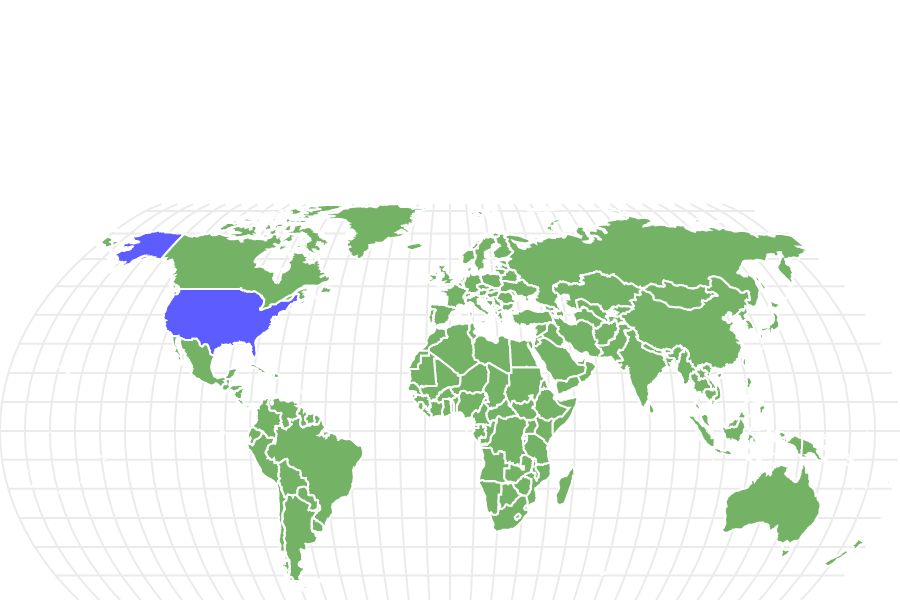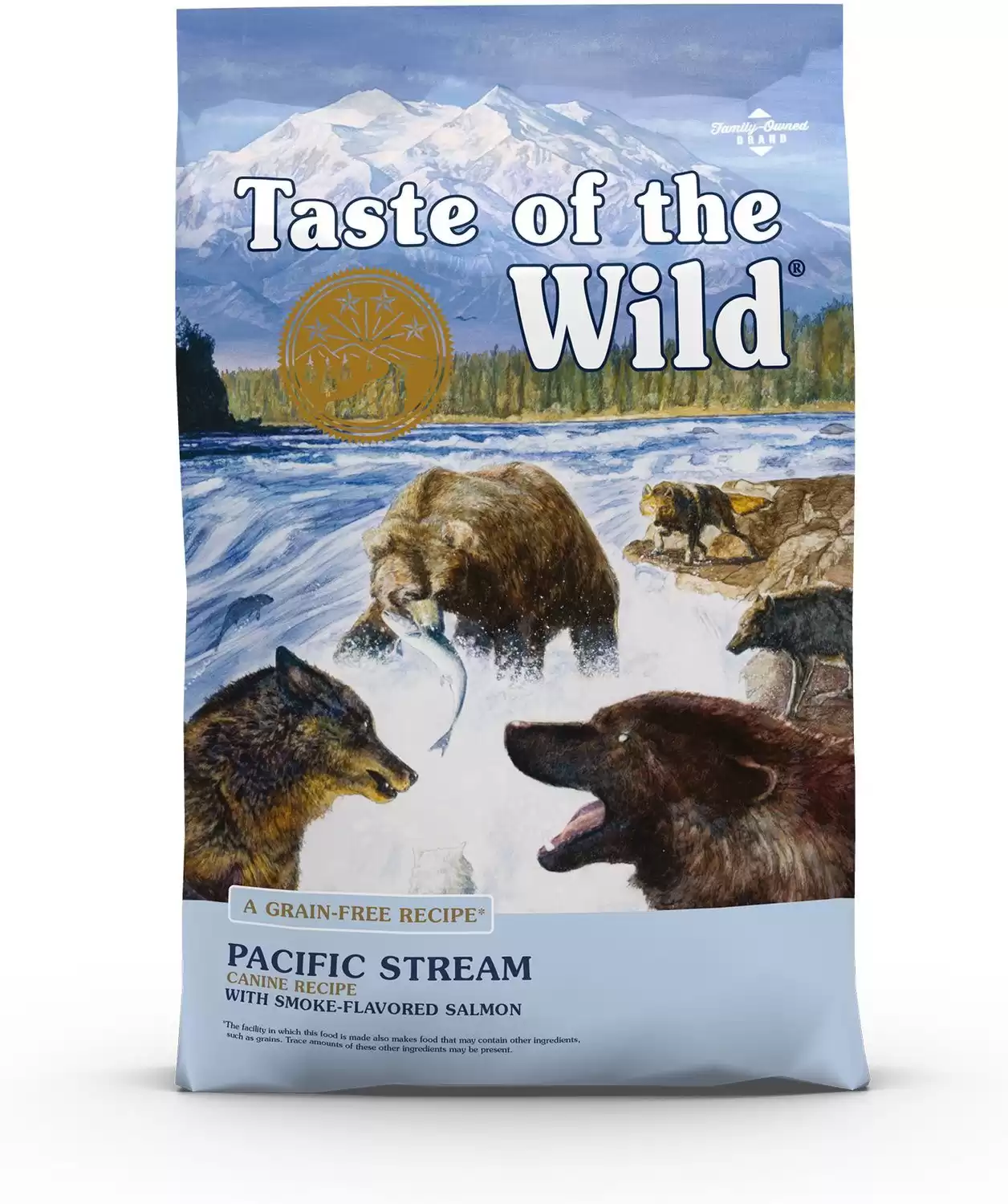Plott Hounds
Canis Lupus
Advertisement
Plott Hounds Scientific Classification
- Kingdom
- Animalia
- Phylum
- Chordata
- Class
- Mammalia
- Order
- Carnivora
- Family
- Canidae
- Genus
- Canis
- Scientific Name
- Canis Lupus
Read our Complete Guide to Classification of Animals.
Plott Hounds Conservation Status
Plott Hounds Facts
Plott Hounds as a Pet:
- General Health
- Energy Level
- Shedability
- Trainability
- Intelligence
- Tendency to Chew
- Size
- Family and kid friendliness
- Yappiness / Barking
- Moderate
- Separation Anxiety
- Low
- Preferred Temperature
- Average climate
- Exercise Needs
- High
- Friendly With Other Dogs
- Moderate
- Pure bred cost to own
- $700
- Dog group
- Hound
- Male weight
- 50-60 lbs
- Female weight
- 40-55 lbs
This post may contain affiliate links to our partners like Chewy, Amazon, and others. Purchasing through these helps us further the A-Z Animals mission to educate about the world's species.
View all of the Plott Hounds images!
“The Plott hound is the official state dog of North Carolina, named for Johannes Plott, who brought five Hanover hounds from his home in Germany.“
This hound is a rugged dog with a curious name, unique history, and fearless yet gentle temperament. The Plott hound was first bred by an early resident of North Carolina, Johannes Plott, who created the breed by refining Hanover hounds from his home country of Germany. These nimble hunting dogs feature a flash coat with colors that range from black to flaming orange to russet brown.
Plott hounds make excellent outdoor companions, happy to accompany their owners wherever their next adventure leads. They’re athletic and enthusiastic dogs with plenty of energy to spare, whether hiking up a mountain or playing in a lake. Additionally, they love to cuddle at the end of the day and serve as mellow, loving companions that are utterly loyal to their families.
Read on to learn more about the Plott hound and everything you need to know about adopting and caring for these dogs.
The Best Dog Food for Plott Hounds
Plott hounds require high-quality dog food with serving sizes and special considerations according to the individual dog’s age, metabolism, and lifestyle. Consult your veterinarian to get a precise formulation for your pup. Generally speaking, Plott hounds aren’t too picky and happily graze on most types of dry or wet dog food. So long as their kibble has at least 22% protein content and plenty of fats and nutrients to meet their energy and health needs, your Plott hound will be a happy pup.
While Plott hounds love a good treat during training, too many can lead to obesity. In fact, some dogs can be prone to weight gain, so keep an eye on your dog’s food consumption and keep up with regular exercise. These dogs also need access to clean, fresh water at all times, especially during and after any outdoor adventuring.
We at A-Z Animals recommend Taste of the Wild Pacific Stream Grain-Free Dry Dog Food as an ideal blend of protein, nutrients, and antioxidants. This food-rich formulation features salmon as its first ingredient, providing lean protein and a mix of Omega-3 fats to support healthy coats, nails, and skin. Also, the kibble is free from any wheat, soy, or artificial ingredients that could potentially harm your Plott.
•Nutritional, high protein food for large breed dogs
•Real protein as #1 ingredient
•Fruits & superfoods for vitamins & minerals
•Antioxidants, omega fatty acids, prebiotics
3 Pros and Cons of Owning a Plott Hound
| PROS | CONS |
|---|---|
| Calm and loving These hounds have a lot of energy outdoors but are calm and affectionate during downtime. | Strong prey drive May not do well around small animals. |
| Loves outdoor adventures A Plott will follow you wherever the wind takes you. | Can be standoffish Their prey drive can lead them to ignore commands in pursuit of the hunt. |
| Healthy with low medical maintenance These hounds have no common health issues and require minimum maintenance. | Loud barkers You’ll know if someone is approaching your property. |
Plott Hound Size and Weight
The Plott hound female’s average height ranges between 20 and 23 inches, with males capable of growing between 20 and 25 inches. Males can weigh 50 to 60 pounds when fully grown, and females weigh between 40 and 55 pounds.
| Measurement | Size |
|---|---|
| Height (Male) | 25’ Tall |
| Height (Female) | 23’ Tall |
| Weight (male) | 60lbs, fully grown |
| Weight (female) | 55lbs, fully grown |
Plott Hound Common Health Issues
On average, Plotts are healthy dogs with little-to-no breed-specific issues. However, when looking to adopt or purchase a pup, request your breeder’s screening results for genetic problems such as hip dysplasia or eye issues.
The floppy ears of the Plott can be prone to infection, so be sure to regularly check for any liquid and clean them of any debris. Routine vet checkups, vaccines, and parasite control will help your dog live a long and happy life.
Plott Hound Temperament
While these light-footed dogs were bred to chase a trail no matter where it leads, the Plott hound makes for an excellent and loving family dog. They can be somewhat obstinate when lacking strong leadership from their owner. Moreover, Plotts can be wary of strangers, but usually warm up to newcomers fast, though they may be less likely to get along with other dogs. They often consider smaller animals as prey, and if lacking a solid recall, these dogs can go wild running after a squirrel or rabbit‘s scent.
How To Take Care of Plott Hounds
Plott hounds are relatively low-maintenance dogs, though may not be well suited for first-time owners. They require clear rules and hierarchical structure and can become standoffish without proper training and socialization. With love, time, and patience, the Plott hound makes a loving and cuddly companion that will travel with its family to the ends of the Earth.
Maintenance and Grooming
The Plott sports a smooth, glossy coat of fine fur that requires relatively minimal maintenance. Weekly brushing with a soft-bristle brush will remove loose hair or dirt, and the occasional bath will keep him smelling clean. Plott hounds’ ears need a regular inspection for any dirt or debris and are easily cleaned with a vet-recommended ear-cleaning solution. Regularly trim your dog’s nails to prevent breakage.
Training
These dogs are highly intelligent and confident, and while they love people, they can be a bit standoffish. Plott pups should be socialized via broad exposure to people and other animals and can quickly start training at a few months old. They require regular mental stimulation to keep them occupied, or they may begin to find undesirable ways to keep themselves amused. Take care to properly train them to avoid the development of food or toy aggression. Though they’re loud barkers, teaching them to speak on command will mitigate their mouthiness.
Exercise
Plott hounds thrive on exercise and require ample outdoor time and movement. They’re well-known for their stamina, agility, and endurance and thrive with vigorous exercises such as long walks, hiking, or agility training. Plotts also excel at lure-coursing and other hunting-adjacent activities and competitions. Due to their strong prey drive, Plotts should be kept on a leash.
Puppies
Plotts are an uncommon dog breed, meaning there may be a long lead time before you can acquire a puppy. Seek a reputable breeder who keeps their dogs free of genetic diseases or unwanted temperaments. With frequent socialization and early training, Plott hounds will quickly learn who’s in charge and respect their owners’ commands.
Plott Hounds and Children
These dogs are more protective than the average hound dog and absolutely adore the children in their families. They do best with older children who understand how to interact with dogs respectfully, but they are playful with young kids if they are raised together. Plott hounds can become food aggressive, which may pose a problem if your young child tries to go for their bowl.
Dogs Similar to the Plott Hound
The Plott hound is closely related to similar hound breeds, such as its parent Hanover hound, the mountain cur, and the Bavarian mountain scent hound.
- Bavarian mountain scent hound: These hounds share the Plott’s fine, beautifully colored coat, floppy ears, and strong prey drive.
- Hanover hound: The German dog provided its genetic material to create the Plott hound.
- Mountain cur: These purebred hunting dogs are used to track rabbits, squirrels, and other small game.
Popular Names for Plott Hounds
Popular names for Plott Hound dogs include:
- Xena
- Sophia
- Chase
- Copper
- Hunter
- Emine
Related Animals
View all 192 animals that start with PPlott Hounds FAQs (Frequently Asked Questions)
Are plott hounds good family dogs?
Plotts are exceedingly loyal to their families and will bravely protect them from intruders or danger. They love to adventure with their owners and wind down at the end of a long day with cuddles. They do best around older children or younger kids who’ve been properly taught to interact with a dog respectfully
How rare is a plott hound?
Plott hounds are reasonably rare, despite the fact they’re the state dog of North Carolina. They’re more often bred as hunting dogs instead of pets and are used to hunt game to this day.
How long do plot hounds live?
The plott hound’s average lifespan ranges from 11 to 13 years, though healthy dogs can outlive this timespan.
Thank you for reading! Have some feedback for us? Contact the AZ Animals editorial team.
Sources
- American Kennel Club, Available here: https://www.akc.org/dog-breeds/plott-hound/
- Wag Walking, Available here: https://wagwalking.com/name/plott-hound-dog-names
- Chewy, Available here: https://be.chewy.com/dog-breed/plott-hound/


















